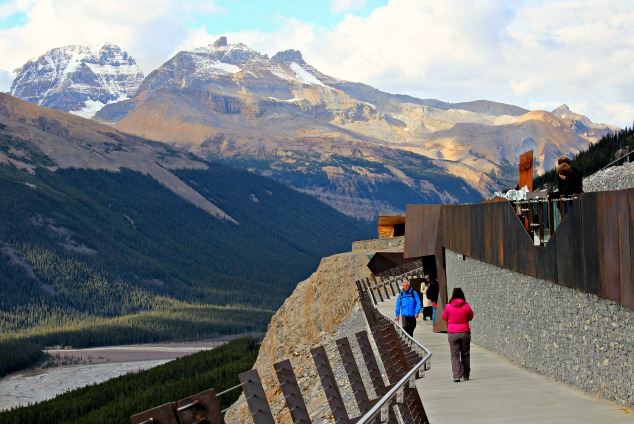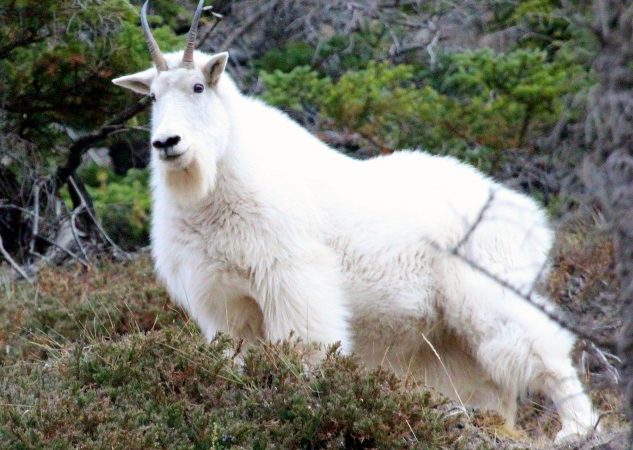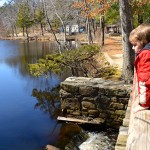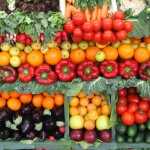With the loonie (Canadian dollar) under pressure, RVing in Canada is gaining in popularity as an affordable vacation.

The newly opened Glacial Skywalk over the Athabasca Glacier (Jasper National Park, Alberta) lets you experience waterfalls, wildlife, fossils, and more on an exciting cliff-edge walkway that leads to a platform where glass is all that separates you from a 918-foot drop. © Rex Vogel, all rights reserved
At present, one US dollar is worth $1.25 Canadian. With the loonier being lower than it has been in years, many RVers and travelers from the U.S. will no doubt view Canada as a place where they can stretch their money further and get more out of their vacation dollar than in other destinations.
Another boon to RV travel this summer is the exceptionally low fuel prices.
A major travel destination renowned for its vast natural landscapes and stunning scenery, Canada is a great place to create RVing memories for you and your family.
America’s northern neighbor offers visitors a truly unique vacation experience with a exceptional diversity of natural attractions. Whatever adventure you may seek, Canada has a destination.
You will never tire of RVing in Canada because over the next horizon there is something amazing to see and experience.
Metric System
Canada uses the metric system. American visitors may find the following conversions helpful.
Fuel in Canada is measured in liters. One U.S. gallon equals 3.785 liters.
Temperature in Canada is measured in degrees Celsius (°C). To convert a Celsius temperature to Fahrenheit: Degrees Celsius = Degrees Fahrenheit x 1.8 + 32 (e.g. 20°C = 20 x 1.8 + 32 = 68°F)
Distance in Canada is measured in meters (m) and kilometers (km). One yard equals 0.9 m; one mile equals 1.6 km.
Speed in Canada is measured in kilometers per hour (km/h).
RVing to Canada Border Requirements
To ease your border crossing the following regulations and suggestions are offered.
Canadian law requires that all persons entering Canada carry both proof of citizenship and proof of identity. A valid U.S. passport, passport card, or NEXUS card satisfies these requirements for U.S. citizens. Children under 16 need only present proof of U.S. citizenship.
Have proof of where you call home, especially if your driver’s license and vehicle tags list different states.
You must have proof of ownership and insurance for all vehicles. If towing a second vehicle be prepared to show the agent the registration for both vehicles.
If your RV is a diesel pusher DO NOT set air brakes when stopping at the booth.
Remove your sunglasses so the border agent can see your eyes. It allows them to read your expressions and shows you aren’t hiding anything,
Answer only questions asked and NEVER volunteer additional information.
Do NOT relay to an agent that you are a fulltime RVer. Officials feel that if you have no home you may have no reason to return to your home country.
Due to new diseases that surface from time to time, the rules of what food—especially meat—that you can have on board may differ from day to day. As a result it’s best to travel north OR south across the border with minimal food.
Every traveler entering Canada must declare all food, plants, animals, and related products.


